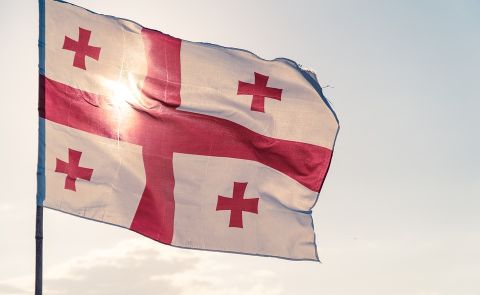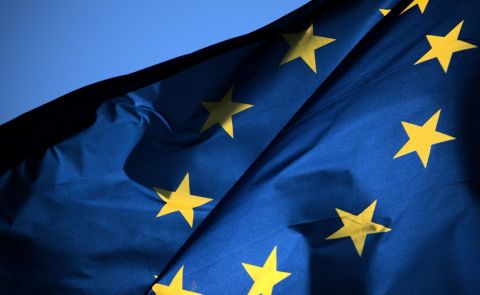
Angela Merkel in the South Caucasus: Results
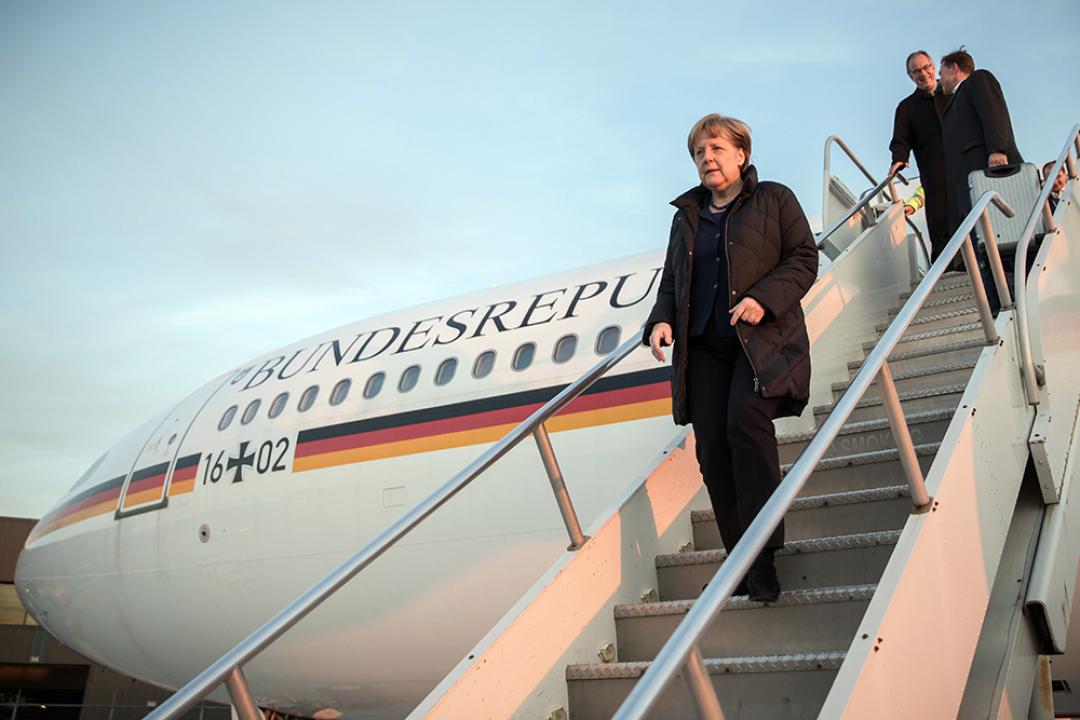
Georgia: Visit among friends
On August 23, Chancellor Angela Merkel visited Georgia as part of her Caucasus trip. Merkel was in Tbilisi for the first time since August 2008. At that time she came for a one-day visit to the conflict talks during the August war between Russia and Georgia. During her recent visit she talked about the situation in the Russian-occupied Georgian regions, the European integration of the country and the deepening of economic and cultural relations.
EU rapprochement of Georgia
Chancellor Merkel emphasized Georgia's efforts in regards to the integration with the EU and underlined its commitment to developing relations between the EU and Georgia. "Georgia is a very important partner in the Eastern Partnership: there is the Association Agreement, the Free Trade Agreement, as well as the enlargement and strengthening of relations between our countries," the Chancellor responded to a question about Germany's role when it comes to the country's path to EU membership. Angela Merkel supported the classification of Georgia as a safe country of origin. She pointed to the temporary increase in the number of Georgian asylum seekers who had come to Germany after visa liberalization came into effect. However, the Chancellor also noted that the number of asylum seekers is now declining thanks to the measures taken by the Georgian government. For his part, Georgia's Prime Minister Mamuka Bachtadse promised that his government would continue its efforts to reduce the influx of asylum seekers from Georgia.
However, Chancellor Merkel dampened Georgia's hope when it came to joining the European Union in the foreseeable future. They want a closer cooperation, Merkel said in a discussion with the Georgian students. "But the Europeans must not promise too much too quickly" she commented on the question of the date of possible EU accession. It is not just about Georgia having to meet the criteria for admission to the EU. "The EU must also be able to absorb new countries," emphasized Merkel. Georgia's Prime Minister Bachtadze said Georgia sees itself as part of European civilization. "But we have no illusions. We still have much to do, "he said.
Economic Cooperation
The Chancellor said at a press conference with the Georgian Prime Minister that Georgia is pursuing a "very well-managed economic path". "Economic growth in Georgia is obvious ... I think we can work together in different areas. The Prime Minister also pointed out that cooperation between small and medium-sized enterprises in the two countries is important. The ministers of the economy of both countries should hold meetings more frequently. Our cooperation should be more intensive, we should share our experiences with each other, "Merkel said.“We welcome the activities of all German companies in Georgia. In addition to successful projects, we want to expand bilateral cooperation even more, see more German investment in Georgia and build relationships between small and medium-sized enterprises in parallel with large German companies, "said Bachtadse at the economic roundtable attended by Georgian and German business representatives and the German Chancellor.
Two agreements between Germany and Georgia with a total value of 193 million Euros are probably the most important result of the Chancellor's visit. The agreements include the construction of an underground gas storage facility in Georgia and the development of a modern sewer system.
Expressions of support for Georgia's territorial integrity
Merkel recalled her trip to Georgia ten years ago, shortly after the war between Georgia and Russia. Even then she demanded the withdrawal of Russian troops. Today she still stands for the territorial integrity of Georgia. The presence of Russian troops in the two breakaway regions of South Ossetia and Abkhazia is an injustice that will not be forgotten. At first, she did not use the word “occupation”. It was only the students of the University of Tbilisi on Friday morning, who managed to elicit a clear statement from Merkel on the matter. Speaking to Georgian students, she said that Russia had occupied part of the country and she was not worried about calling it an occupation. The students responded with applause to the words of the Federal Chancellor. However, Merkel has presented no concrete solution against Russia's occupation policy. One must try to prevent the occupation from becoming a permanent state. At the same time, however, she pointed out that no step had been taken in the last ten years.
Chancellor Angela Merkel also traveled to the border with the Russian-occupied areas of Georgia to learn about the situation at the border region and the work of the EU monitoring mission on the ground.
Armenia: An introductory visit
Expansion of economic relations
In the Republic of Armenia, which has been led by a new government since the "Velvet Revolution" in the spring of this year, the Chancellor met on August 24 with Prime Minister Nikol Paschinjan and President Armen Sarkisyan. Merkel explained that the Federal Republic would continue to develop its relations with Armenia, especially in the field of information technologies and education. There are currently 150 German companies active in Armenia, with sales so far growing by 41% this year compared to the first seven months of 2017; now amounting to 171 million Euros.
Visa liberalization and cooperation with the EU
Merkel said that Germany will lobby for the visa liberalization with Armenia. However, liberalization of the visa requirement for Armenians for the EU and Germany is closely linked to the question of how progress can be made on asylum and migration issues. Armenia is a good example of how a country can work successfully with both the European Union and Russia.
"The suffering of the Armenian people will not be forgotten"
Chancellor Merkel visited the Zizernakaberd Memorial in Yerevan. There she recalled the massacre that was committed on the Armenians during the First World War. "We know very well, which cruelties were inflicted on the Armenians in 1915/16", quoted Merkel the government spokesman Steffen Seibert. "This suffering will not be forgotten." However, she avoided the term "genocide". The German parliament classified these atrocities as genocide in June 2016.
Azerbaijan: Results of the visit
Azerbaijan was the Chancellors last stop on her Caucasus trip. At a joint press appearance with Azerbaijani President Aliyev on August 25, the Chancellor spoke about economic cooperation with the oil and gas-rich country, which accounts for 66% of Germany's trade volume in the region, but also about the human rights situation and the Nagorno-Karabakh conflict.
Economy
With Azerbaijan, Germany has the most important and largest economic exchange in the region. It is in the interest of Azerbaijan to diversify its economy and here Germany can make an important contribution, said the Chancellor. "On the other hand, Azerbaijan is an important factor for the European Union to diversify its sources of energy supply and therefore the opening of the Southern Gas Corridor is good for the energy supply of the European Union," said the Chancellor. "We also very much appreciate the new Baku-Tbilisi-Kars railway connection, which of course also represents a bridge between Europe and Asia and makes trade exchange a lot better," Merkel said. Aliyev, for his part, said that Azerbaijan was prepared to increase gas supplies to Europe and expand gas pipeline capacities accordingly. He reacted cautiously to a demand for the Trans-Caspian Pipeline, which would allow gas from Turkmenistan to reach Europe. A decision on this pipeline should be taken mainly by the owner of the gas, in this case Turkmenistan. The potential transit countries, including Azerbaijan, would not have to put forward any initiatives here, according to Aliyev.
Human rights
Angela Merkel also addressed the situation of human rights in the Caucasus republic that is often criticized in the West: "We talked about the issue of the internal situation in Azerbaijan and talked about the human rights issue in an open atmosphere. Here, we do not agree on all questions ". However, Merkel campaigned for a strong civil society with a clear secularism and made it clear that Germany wanted this strong civil society. In addition, the Chancellor met in the residence of the German ambassador with civil society representatives.
Security
The Nagorno-Karabakh conflict between Armenia and Azerbaijan was also on the agenda of the bilateral talks in Baku. According to Merkel a new government in Armenia has the potential to boost the peace negotiations between Baku and Yerevan. Anyway, it is in the German interest to solve the conflict, and Berlin is ready to join the OSCE as a member of the Minsk Group, said Merkel. The Azerbaijani newspaper "Zerkalo" suggests that a stable security situation in the Caucasus is important above all for the German energy interests in the region.
Siehe auch

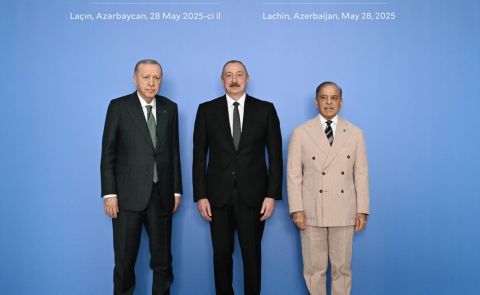
Aserbaidschan, die Türkei und Pakistan betonen auf dem Gipfeltreffen in Lachin ihre wachsende strategische Zusammenarbeit
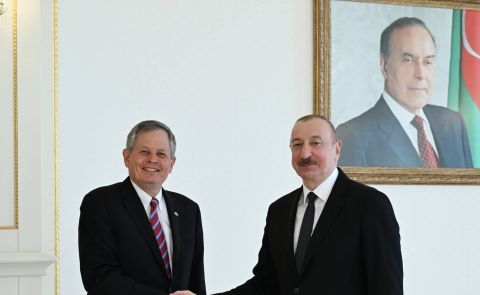
Ilham Alijew trifft US-Senator Steve Daines zur Erörterung der Stärkung der Beziehungen zwischen Aserbaidschan und den USA

Dmitry Volvach Reports 60% Growth in Azerbaijan-EAEU Trade Over Three Years
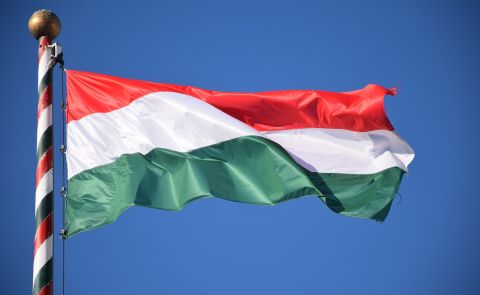
Ungarn besteht auf gleicher EU-Finanzierung für Armenien und Aserbaidschan
